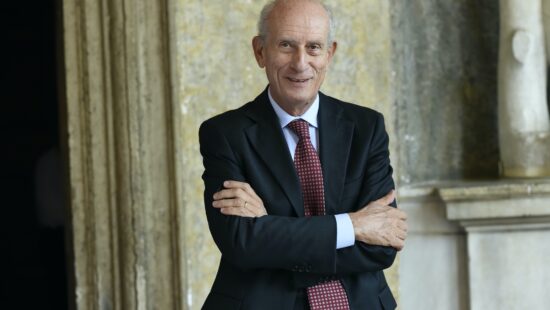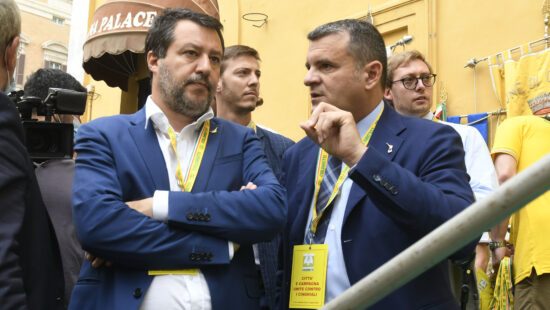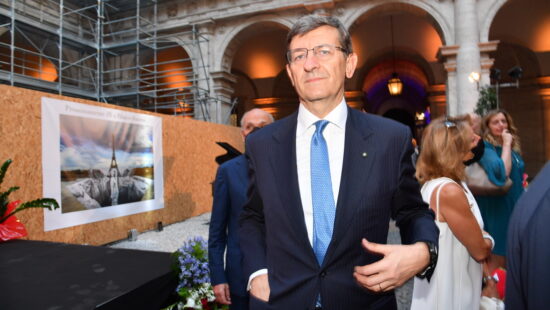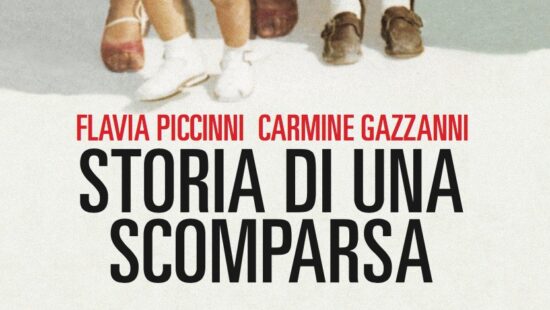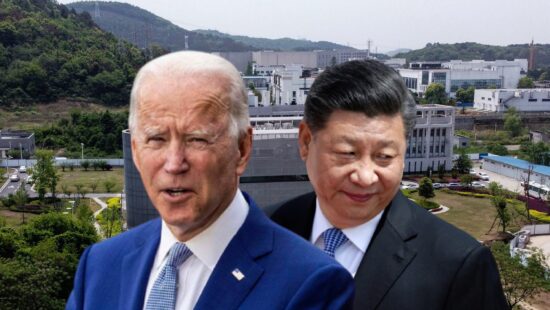Negli ultimi giorni su Formiche.net abbiamo approfondito il tema del decreto legislativo che dovrà recepire la Direttiva Copyright, approvata nel 2019 ma non ancora adottata dal nostro Paese (e da altri 20 Membri dell’Unione europea). Prima con l’intervista al professor Giuseppe Colangelo, poi discutendo con l’avvocato e docente Marco Scialdone, entrambi critici dell’approccio del governo italiano, che ha introdotto una serie di elementi assenti dal testo approvato a Bruxelles. Oggi pubblichiamo l’intervento di Francesco Posteraro, già commissario dell’AgCom e vice Segretario generale della Camera dei deputati, oggi avvocato e docente di Diritto delle comunicazioni digitali.
***
Credo sia necessario delineare preliminarmente il quadro nel quale di iscrivono gli interventi legislativi adottati e in corso di adozione da parte dell’Unione Europea. Ricordiamo tutti che per lungo tempo la rete si è sviluppata in condizioni di pressoché totale assenza di regole. Condizioni utili per diffonderne l’uso e tali nel contempo da contribuire all’affermazione di modelli di business fortemente innovativi e adatti a sfruttare al meglio le opportunità offerte dall’evoluzione tumultuosa della tecnologia.
In virtù soprattutto della loro efficienza nei processi di acquisizione e di trattamento dei dati, e almeno in parte anche grazie al fatto di godere di regimi giuridici assai meno strutturati, le grandi piattaforme digitali hanno così acquisito un vantaggio competitivo pressoché incolmabile nei confronti degli operatori tradizionali e posizioni incomparabilmente più forti di quelle proprie dei titolari dei diritti.
Le piattaforme dominano ormai completamente i mercati digitali (e teniamo presente che stanno digitalizzandosi non solo i servizi, ma anche l’industria, grazie all’intelligenza artificiale): ne controllano l’accesso e determinano la remunerazione degli altri operatori ai quali fanno concorrenza. Le loro dimensioni non trovano riscontri nella storia economica. Il loro potere economico è così vasto e ramificato da essere, per ciò stesso, anche potere politico.
Si è dunque verificato, in questi anni, uno straordinario paradosso: in nome della libertà di internet si sono costituiti i più grandi monopoli della storia.
Fenomeni negativi come cyberbullismo, hate speech, fake news, traffico illecito di dati personali (ricordo il caso Cambridge Analytica) hanno contribuito a far emergere il lato oscuro della rete e i pericoli insiti nella dittatura di algoritmi orientati – com’è peraltro logico che sia – al profitto delle imprese che li hanno sviluppati.
Sia pure non del tutto tempestivamente, le Istituzioni europee hanno preso consapevolezza di questa situazione e della necessità di porre un argine allo strapotere delle piattaforme. Di fare in modo – in altri termini – che in internet regni la forza del diritto, e non il diritto della forza.
Da questa consapevolezza ha tratto origine la direttiva copyright, per impedire la cui approvazione, non dimentichiamolo, è stata messa in atto un’azione di lobbying di un’ampiezza e di un’aggressività senza precedenti. Ricordo le mail dal contenuto intimidatorio inviate ai parlamentari; l’oscuramento per protesta di Wikipedia malgrado l’espressa esclusione delle enciclopedie gratuite online dall’ambito di applicazione della direttiva; la mobilitazione degli influencer da parte di Youtube per indurre i più giovani a credere che l’entrata in vigore della direttiva stessa avrebbe comportato la chiusura della piattaforma.
Da questa stessa consapevolezza traggono origine anche le due proposte di regolamento in corso di esame, il Digital Services Act e il Digital Markets Act, volte a disciplinare, rispettivamente, i servizi e i mercati digitali in modo che in entrambi non sia completamente soffocata la concorrenza. Per definire l’obiettivo politico di queste due iniziative la Vicepresidente della Commissione europea Vestager ha usato una formula molto efficace: le piattaforme – ha detto – devono servire i cittadini, non il contrario.
Come, purtroppo, avviene attualmente in un mondo nel quale le piattaforme acquisiscono i dati – che rappresentano il petrolio della new economy – attraverso transazioni diseguali ed opache. Diseguali, perché per acquistare un servizio una tantum gli utenti cedono i loro dati per sempre; opache, perché gli utenti non hanno la benché minima idea né di quale sia il valore economico dei dati che cedono, né di come questi dati verranno usati. Lo stesso creatore del web, Tim Berners- Lee, ha affermato che alcuni software sono stati progettati – cito testualmente – per fornire incentivi perversi a chi sacrifica i propri dati personali.
Quanto alla trasposizione della direttiva copyright nel nostro ordinamento giuridico, dico subito che giudico positivamente lo schema di decreto legislativo approvato dal Consiglio dei ministri. Sono due, com’è noto, le disposizioni della direttiva che hanno a suo tempo suscitato i maggiori contrasti e sulle quali si è soprattutto concentrata l’attenzione anche in sede di recepimento: l’art. 15 e l’art. 17.
Quest’ultima disposizione tende a limitare, nei confronti degli online content sharing service provider, l’esonero da responsabilità di cui alla direttiva e-commerce, che risale al 2000 (ben ventuno anni fa: un tempo che equivale a un’era geologica, in termini di evoluzione della tecnologia e di mutamento dei modelli di business e degli equilibri di mercato. Nel 2000 le piattaforme non avevano assunto neppure in minima parte la portata attuale non solo quanto a dimensioni economiche, ma anche quanto a capacità di influenza sulle scelte e sugli orientamenti del pubblico).
In particolare, l’art. 17 prevede che i provider siano esenti da responsabilità solo al ricorrere di determinate condizioni, ossia se dimostrano di essersi adoperati in ogni modo, di avere compiuto i massimi sforzi per ottenere un’autorizzazione da parte dei titolari dei diritti e, se non siano riusciti a ottenerla, per impedire comunque che siano disponibili sulle loro reti opere protette da diritto d’autore.
Ebbene, lo schema di decreto legislativo ha il merito di non aver dato spazio, correttamente, ai tentativi di annacquare la portata della disposizione, attenuando la responsabilità dei provider o l’efficacia della tutela del diritto d’autore. Penso alla proposta di sostituire la locuzione “massimi sforzi” con “migliori sforzi” o a quella di introdurre il riferimento a un principio di ragionevolezza di cui non c’è alcuna traccia nella direttiva. Penso, soprattutto, all’ipotesi, che era stata prospettata, di prevedere che la presentazione di un reclamo da parte dell’uploader potesse sospendere gli effetti della rimozione o della disabilitazione di un contenuto segnalato da un titolare del diritto come protetto da copyright.
L’art. 15 ha colmato una lacuna esistente nella direttiva infosoc (n. 29 del 2001, sull’armonizzazione di taluni aspetti del diritto d’autore e dei diritti connessi nella società dell’informazione), riconoscendo agli editori di giornali, nei confronti degli internet service provider, un diritto connesso per la messa a disposizione in rete delle loro pubblicazioni, con esclusione degli utilizzi privati o non commerciali, dei link e degli estratti molto brevi, i cosiddetti snippet.
Le modalità di recepimento dell’art. 15 adottate dallo schema di decreto legislativo sono state aspramente censurate, su queste stesse colonne, dal professor Colangelo, il quale ha poi ribadito il suo giudizio critico in un articolo apparso sul Corriere della sera. Colangelo muove da un presupposto errato in punto di fatto, in quanto sostiene che lo schema contemplerebbe un obbligo di negoziazione fra le parti, gli editori da un lato e dall’altro i provider, incluse le imprese di media monitoring e le rassegne stampa. Lo schema contiene, invece, solo norme intese a incentivare la negoziazione e a far sì che quest’ultima si svolga in condizioni di trasparenza e nel rispetto dell’obbligo di buona fede.
Il professor Colangelo lamenta inoltre che sia stata introdotta la previsione di un equo compenso a favore degli editori, previsione a suo giudizio contrastante con la direttiva e tale da dare luogo a un eccesso di delega. A me pare, al contrario, che l’ampia formulazione della legge delega – secondo cui i diritti degli editori devono trovare “adeguata tutela” – consenta senz’altro (e forse persino imponga) al legislatore delegato di stabilire che debba essere equo il compenso da versare alla parte debole del rapporto, quali sono indiscutibilmente gli editori, per l’utilizzo online delle loro pubblicazioni.
Ma soprattutto mi sembra – al di là delle valutazioni di carattere giuridico – che le critiche all’operato del Governo ignorino completamente una gigantesca questione politica. Ignorino, cioè, che la mancata corresponsione agli editori, da parte delle piattaforme, di una quota adeguata dei profitti generati dalla diffusione in rete delle pubblicazioni di carattere giornalistico minaccia sempre più seriamente la sopravvivenza dell’informazione di qualità, che rappresenta uno dei fondamenti essenziali della nostra vita democratica.
Il value gap – ossia la sottrazione di risorse finanziarie rivenienti dalla pubblicità che le piattaforme realizzano ai danni dei media tradizionali sfruttando le opere prodotte da questi ultimi – ha assunto ormai dimensioni che sarebbe colpevole ignorare. Per averne un’idea, si può ad esempio consultare uno studio pubblicato dalla News Media Alliance, un’organizzazione che raggruppa oltre duemila giornali statunitensi, secondo cui nel 2018 Google ha guadagnato, nel solo settore delle news, circa 4,7 miliardi di dollari, mentre l’intero ammontare delle entrate pubblicitarie di tutti i giornali aderenti all’organizzazione è stato pari, nello stesso anno, a circa 5,1 miliardi di dollari.
Tutto questo si riflette in termini catastrofici, ovviamente, sulle quote di mercato della stampa. Nel nostro Paese le tirature annue complessive dei quotidiani sono passate da 3,7 miliardi di copie nel 2007 a 1,1 miliardi nel 2020: addirittura il 70% in meno! Come si può pretendere che un Governo non pensi, avendone l’opportunità, di porre almeno parzialmente rimedio a questo gravissimo stato di cose?
Se dovessi proprio trovare un motivo di dissenso rispetto allo schema di decreto legislativo, farei piuttosto riferimento alla definizione degli snippet. Temo infatti che non sia sufficiente dire che gli estratti, per non far sorgere l’obbligo di compensare gli editori, devono essere tali da non dispensare dalla necessità di consultazione dell’articolo giornalistico nella sua integrità. Per parte mia, riterrei più rispondente alle finalità dell’intervento normativo definire gli snippet come estratti non suscettibili di autonomo sfruttamento economico. Auspico pertanto che il testo definitivo possa essere modificato in tal senso a seguito dell’esame parlamentare del provvedimento.




